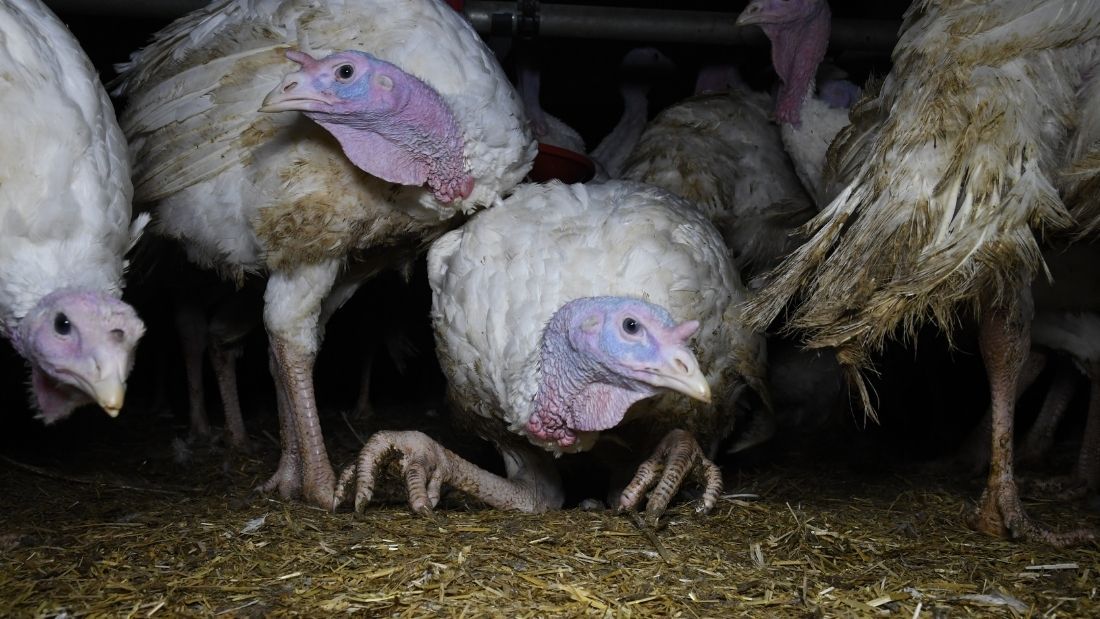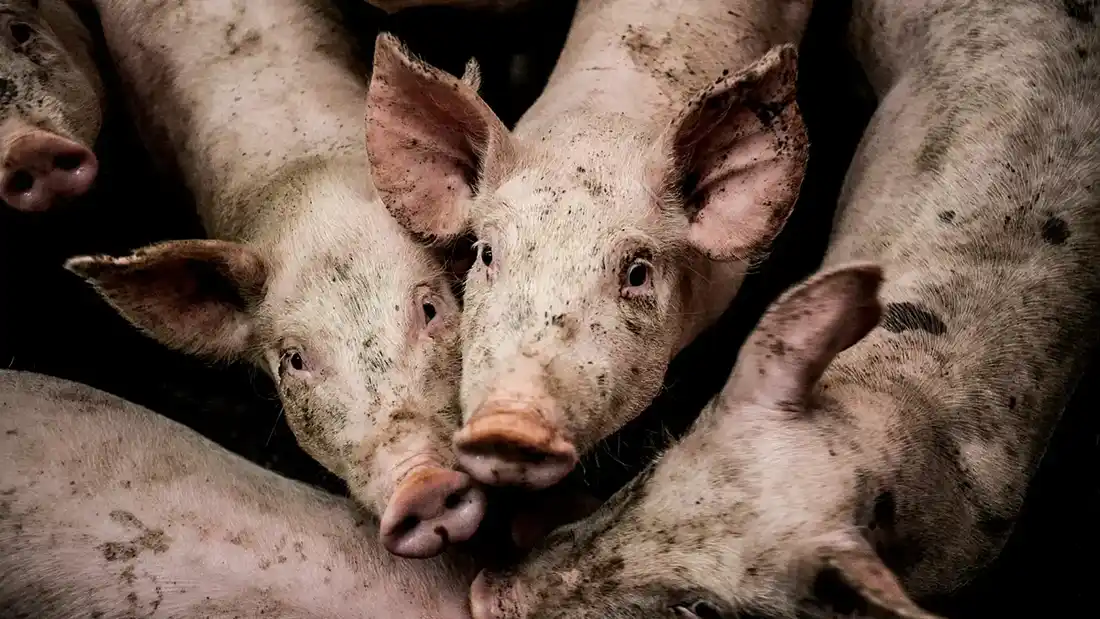Turkeys
Turkeys are highly sociable birds with the amazing ability to communicate with one another through many unique sounds. They love to be stroked and sometimes will even purr like a cat! If you give them an apple, they’ll often play with it on the ground like a football. The characteristic funny-looking neck (called a ‘snood’) of the male actually tells the females that he has good health and high testosterone levels.

A turkey is for life, not just for Christmas
Around 10 million turkeys are killed each year just for Christmas dinners in the UK. People rarely think about a ‘Christmas turkey’ as anything other than the centerpiece of their table.
In actual fact, these are intelligent and social individuals who have had their lives cut short all for the sake of one meal.
Turkey farms in the UK frequently keep up to 25,000 individuals in a single shed, causing stress, disease and infection from the mutilations they are forced to undergo. For instance, males have their snoods cut off under Government animal welfare regulations.
It goes without saying: the best possible animal welfare for turkeys would come from simply not farming them at all!

Bird flu
Intensive farms like the one above are responsible for 90% of the turkeys killed and eaten in the UK. The unhygienic conditions and the large number of turkeys in a very small space make them ideal for the spread of diseases such as bird flu.
Some of these diseases are very lethal to humans, with death rates of between 30 and 60%.
If we want to prevent a future pandemic – one that could be much worse than COVID – then we have to go vegan before it’s too late.




